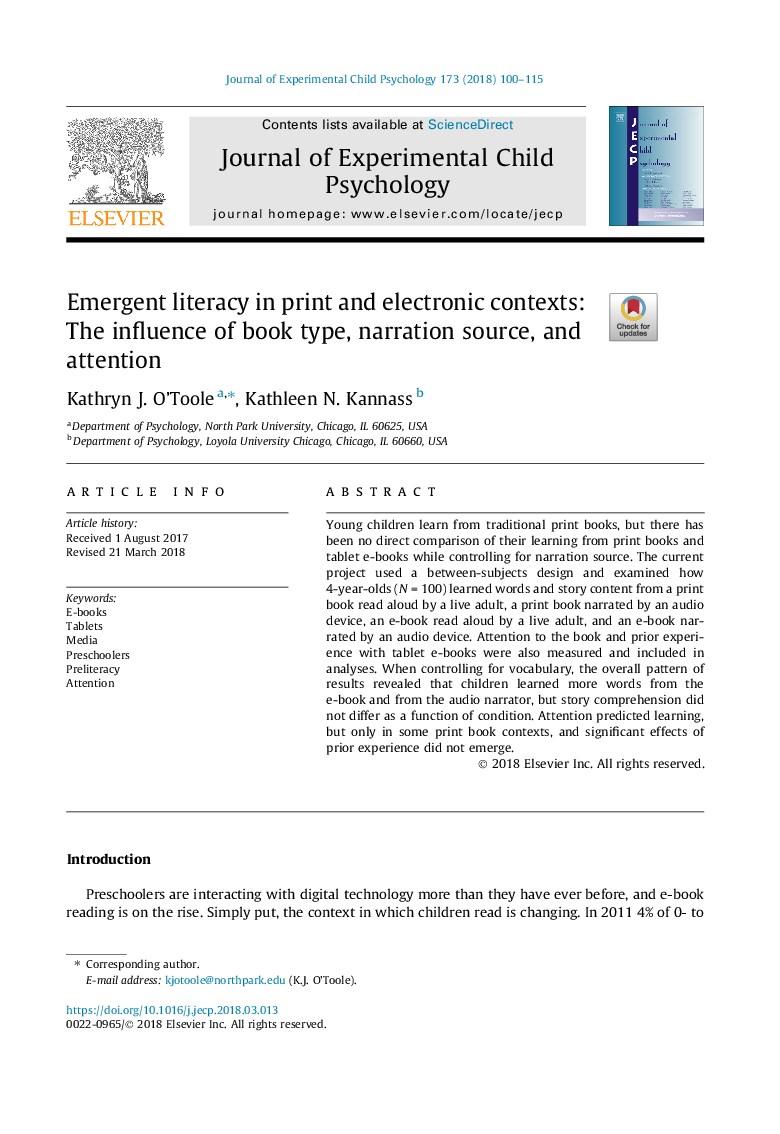| Article ID | Journal | Published Year | Pages | File Type |
|---|---|---|---|---|
| 7273784 | Journal of Experimental Child Psychology | 2018 | 16 Pages |
Abstract
Young children learn from traditional print books, but there has been no direct comparison of their learning from print books and tablet e-books while controlling for narration source. The current project used a between-subjects design and examined how 4-year-olds (Nâ¯=â¯100) learned words and story content from a print book read aloud by a live adult, a print book narrated by an audio device, an e-book read aloud by a live adult, and an e-book narrated by an audio device. Attention to the book and prior experience with tablet e-books were also measured and included in analyses. When controlling for vocabulary, the overall pattern of results revealed that children learned more words from the e-book and from the audio narrator, but story comprehension did not differ as a function of condition. Attention predicted learning, but only in some print book contexts, and significant effects of prior experience did not emerge.
Related Topics
Social Sciences and Humanities
Psychology
Developmental and Educational Psychology
Authors
Kathryn J. O'Toole, Kathleen N. Kannass,
